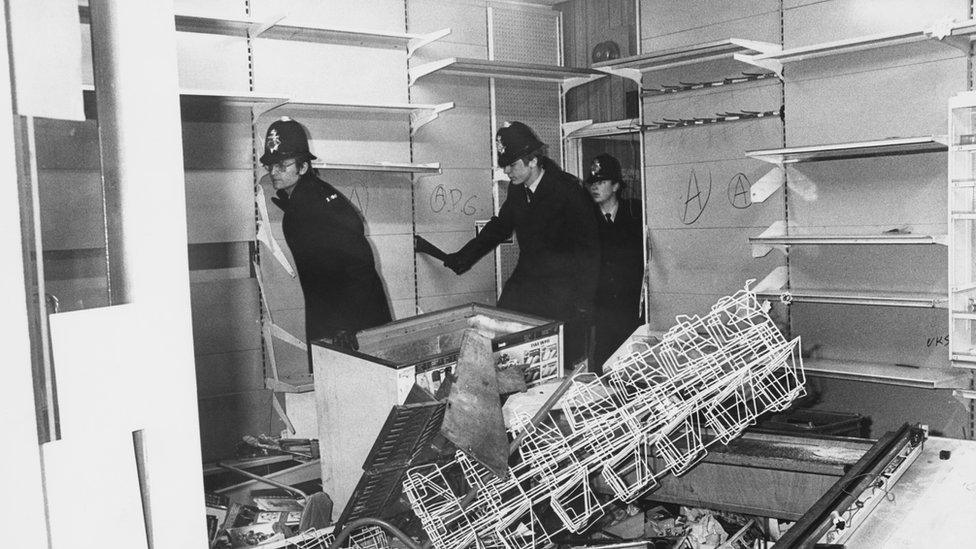'Racism and neglect' blamed for St Pauls rubbish blight
- Published
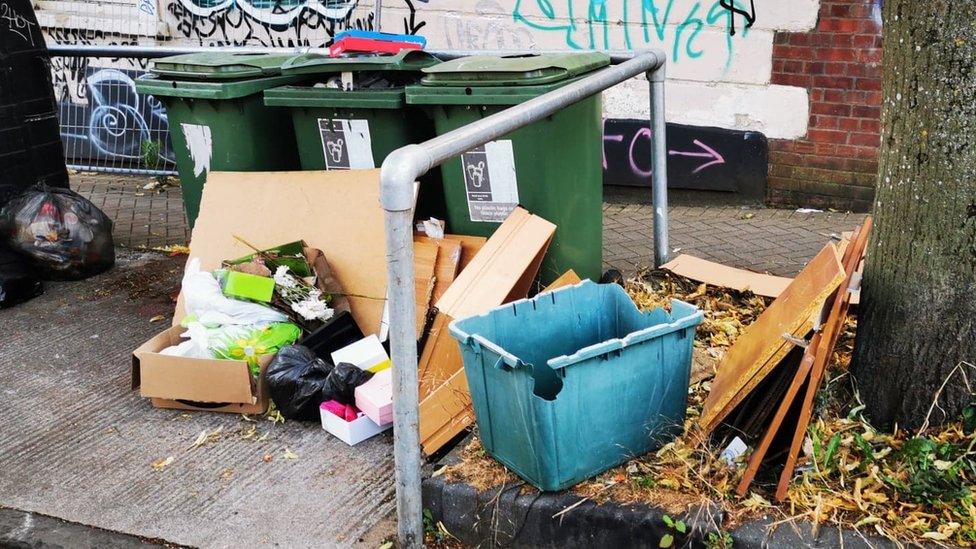
Residents in St Pauls have accused the council and waste contractor of dismissing their concerns simply because of where they live
"Institutionalised neglect" and racism have left streets in parts of Bristol filled with rubbish and fly-tipping reports ignored, residents have said.
One homeowner from the St Pauls suburb alleged a waste contractor call handler told her the area was "never going to be great" because it has "lots of ethnic minorities".
Bristol Waste said it did not recognise the claims "on any level".
It said it responded to all reports with "the same level of service".
But people living in the area have accused Bristol City Council and Bristol Waste of dismissing concerns simply because of where they live.
They said streets were filled with "vermin", litter and overflowing bins and suffered frequent fly-tipping.
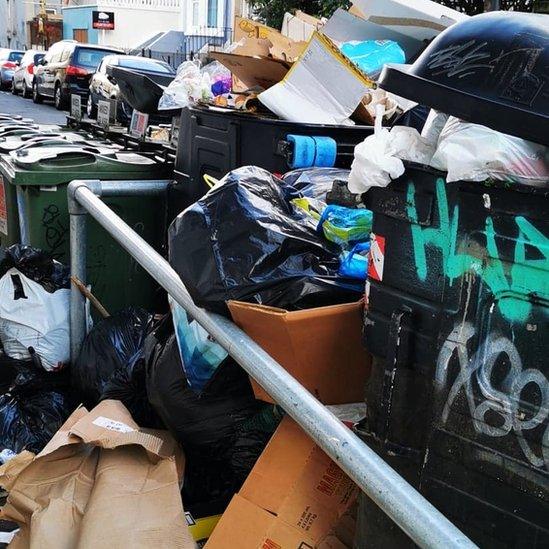
Individual wheelie bins were replaced with communal bins in 2010

Katharine Jordan, 44, claimed when she called Bristol Waste to complain she was told because she lived in an ethnically diverse area people were more "laid back" about the state of the streets.
Ms Jordan said: "I talked about how awful the street is and how damaging it is for everybody who lives there, not just the unpleasantness, and the vermin, but all the stuff that comes with it.
"And I said, 'I really do wonder about how I've never seen any scenes like this in the wealthier areas of the city'.
"The call handler said, 'oh well, it's different in Montpelier and St Pauls… they're just so much more laid back about all that kind of stuff'.
"She said something along the lines of 'that the cultural diversity, the ethnicity, means that basically it is always going to be somewhere that people dump rubbish because not everyone has the same standards'."
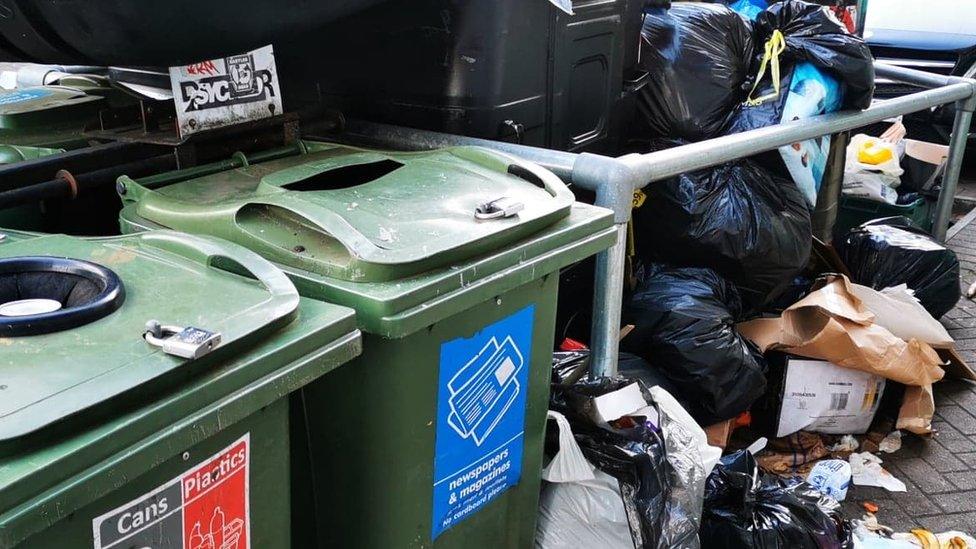
Bags of rubbish can sit alongside wheelie bins on the streets of St Pauls
Mark Chard set up the St Pauls Community Action Group to highlight local issues, with photos of fly-tipping posted on Facebook every few days.
Mr Chard, 36, also worked as operations administrator for the waste contractor May Gurney just before it had its contract ended.
He said there was "an inherent feeling of racism" and that it was "difficult" to get crews to attend the area.
"St Pauls has always had a bad reputation. The feeling was the crews just weren't comfortable working in St Pauls and they wanted to be in and out as quickly as possible," he said.
"You don't tend to get as many reports from people from the BAME community and the council has relied on this for many years. It's institutionalised neglect."
Kier Ltd, formerly May Gurney, agreed an end to its £96m waste contract in 2015 and was taken over by council-owned Bristol Waste.
Mr Chard said: "The contract changed, but the staff didn't. It's just a different letterhead."
Bristol Waste said it "cannot be held responsible or be reasonably asked to account for the actions of an entirely separate company, with entirely different leadership".
It said it carried out more than 15,000 hours of cleaning in St Pauls every year and had cleared 177 fly-tipped items and written to 189 households about waste since the beginning of July.
'Poor have to wait'
Janie Phillips, 56, has lived in the area for more than three decades, and said she repeatedly reported fly-tipping to the council.
She said: "We're doing the council's job for them. We see it and report it, then they say 48 hours (to clear it), but it's often longer.
"The amount of logs they must have… it's weird. I just don't know what they do with the information."
Tyler-Jack Price, 22, added: "It's like the poor have got to wait, the rich get what they want done first. Everyone should be equal in this day and age."
The BBC has spoken to a number of residents who said the problem was complex with a number of contributing factors but they believed widely held negative views of the area by the authorities had contributed to the situation.
Bristol Waste said: "We take accusations of this nature very seriously but we do not recognise these claims on any level.
"All reports of fly-tipping are responded to with the same level of service across the city.
"As a company we have zero tolerance for racism and challenge it whenever we see it."
The council declined to comment further.
- Published6 July 2020
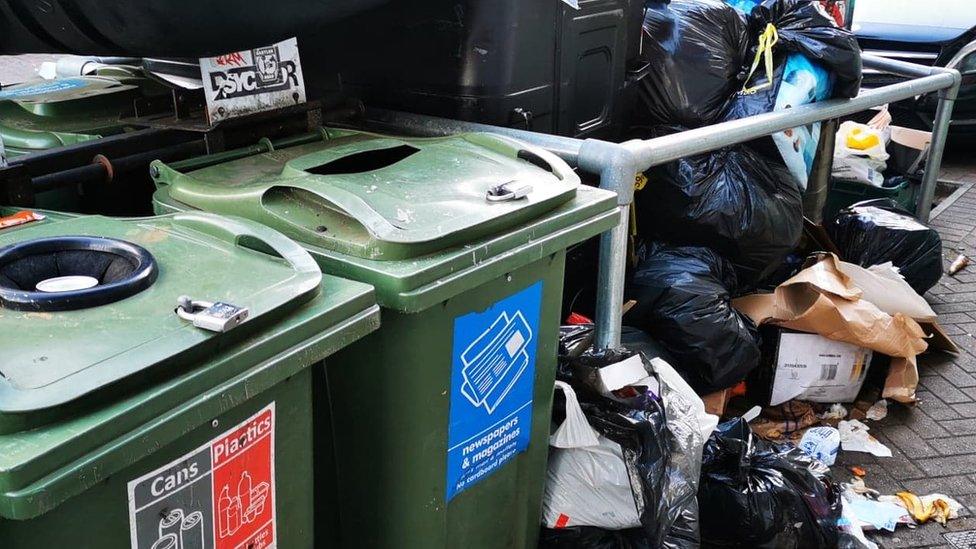
- Published19 June 2020
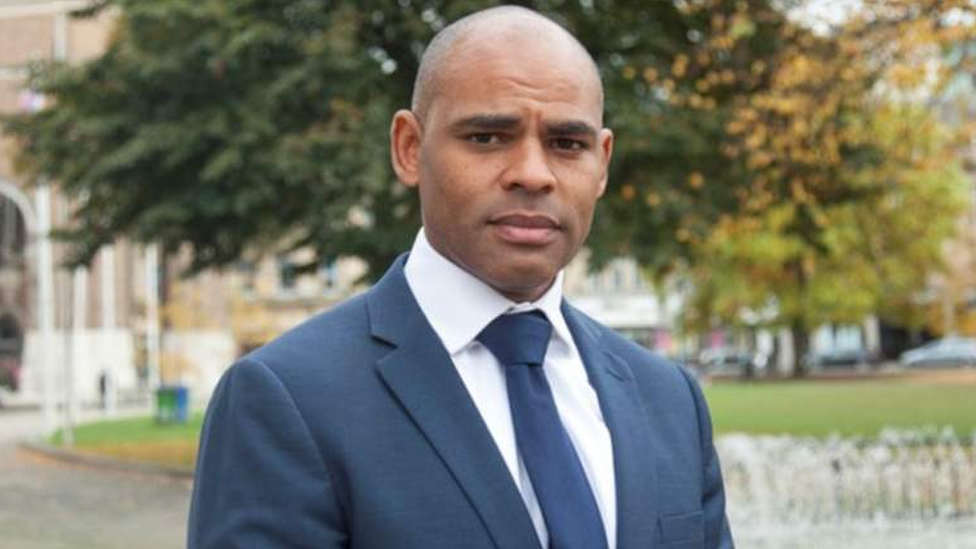
- Published3 July 2020
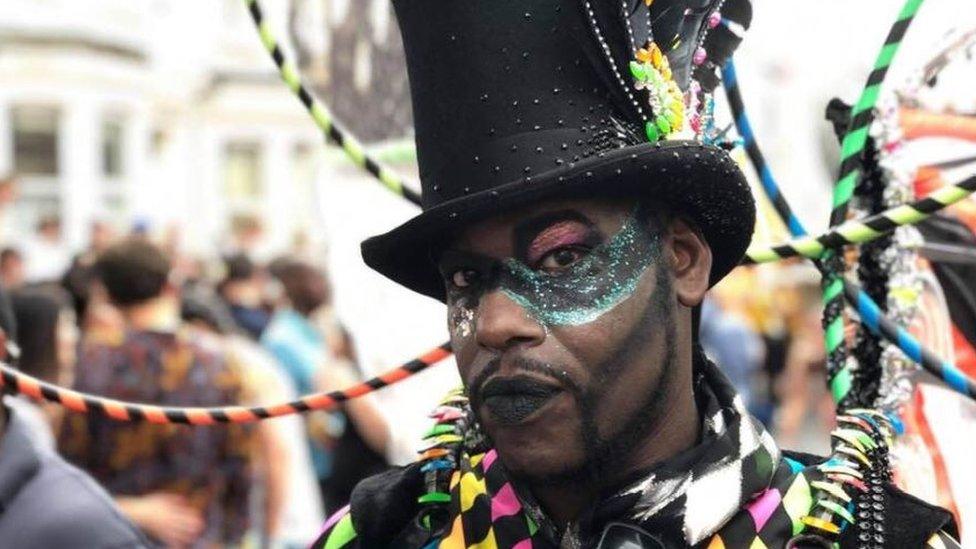
- Published25 June 2020
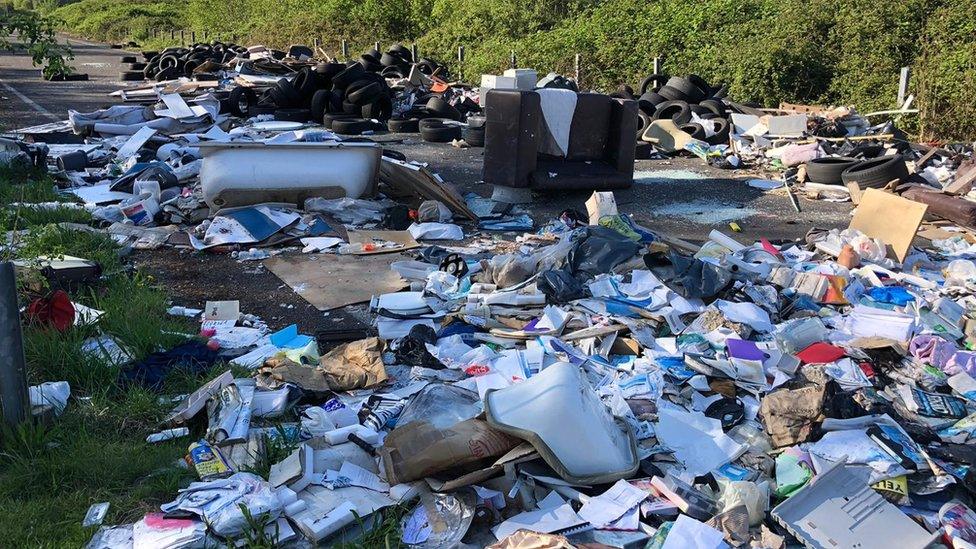
- Published2 April 2020
